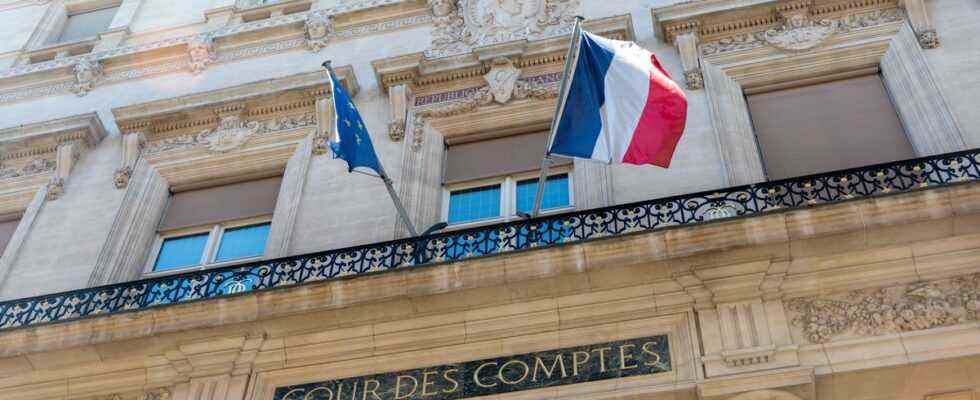Financial magistrates are currying the management of public funds under Macron’s first five-year term.
Even if their speech remains polite, the magistrates of the Court of Auditors no longer hide the seriousness of the situation of public accounts. Published Thursday, the traditional and long-awaited audit on the situation of public finances carried out at the start of each legislature since 1993 confirms a sad reality: France, which has always lived beyond its means without carrying out a policy of cleaning up its accounts. , finds itself up against the wall with an exploding debt in a dangerous context of rising borrowing rates on the markets. With this report,it is a warning message that we pass today “says Pierre Moscovici.
The first president of the Court of Auditors urges the executive to come out of its blindness and to embark on a “credible” trajectory of expenditure control for the next five years.
Admittedly, this audit, which notably analyzes Macron’s first term, is not as scathing as the 2017 opus when the financial magistrates judged the last budget adopted at the end of 2016 under François Hollande “obviously tainted with insincerity“. Their judgment is no less severe. During the first part of the five-year term, the President of the Republic did not take sufficient advantage of the good economic situation and the extremely low interest rates on the financial markets to straighten out the accounts. Especially since, unlike today, he had a solid majority in the Assembly to correct the situation. “A missed opportunity» for the former Minister of the Economy (2012-2014), the first to have spoken of «tax fed up“.
The recovery dynamic actually seized up very quickly, with the movement of “yellow vests” at the end of 2018. At that time, the government had not skimped on the means to appease social discontent, multiplying bonuses and reductions in levies , at the cost of a deterioration in the fiscal deficit. The coronavirus crisis has ended any ambition to limit spending with the presidential “whatever it takes”, plunging the public accounts into bright red. As a result, public debt has increased by 15.1 points in two years, an increase of no less than 440 billion euros, to stand at 112.5% of GDP at the end of 2021. An explosion that is not only attributable to the health situation. Last year, “non-crisis” spending exploded by no less than 5.1%…
Threat to tricolor sovereignty
“The Court of Auditors has never called into question the “whatever the cost” that was justified. But we cannot settle into a systematic and perpetual “whatever it takes”“Warns Pierre Moscovici. And for good reason ! Financial leeway is now almost non-existent, while the Borne government continues to increase spending, with tens of billions of euros, without giving a clear and detailed direction on the savings to be made.
Moreover, the financial magistrates are worried about the latest forecasts of the executive deemed far “too optimistic” for this year, with growth estimated at 2.5% and a deficit stabilized at 5% as planned in the initial finance law. end of 2021.”These forecasts remain surrounded by many risks and hazards related to the geopolitical, economic and health situation.“, Points out the Court of Auditors, to say the least very interrogative and suspicious about the total additional expenditure, estimated at nearly 60 billion euros compared to the initial 2022 budget, to fight against inflation.
Read alsoFuels: prices fell again at the end of June
A salty bill largely linked to the purchasing power package to protect the French against the explosion of prices, presented Thursday afternoon in the Council of Ministers and quantified for the time being at 20 billion euros. But not only. The addition also includes an explosion in the debt burden of 17.8 billion euros in one year. “It’s a warning. We cannot live under the illusion of free debt“, insists Pierre Moscovici. And this is only the beginning… Because the rise in interest rates on the markets will weigh more and more heavily over the next few years. In this very bleak context, the sustainability of public accounts “becomes more than ever a requirement without which the country would be exposed to growing risks that could threaten its sovereignty“, continues the institution. And its financial magistrates insist, once again, on the various reforms necessary to carry out, including the thorny overhaul of the pension system. The hardest part is yet to come
SEE ALSO – Purchasing power: energy, wages, rents… Borne reveals the “emergency” measures
